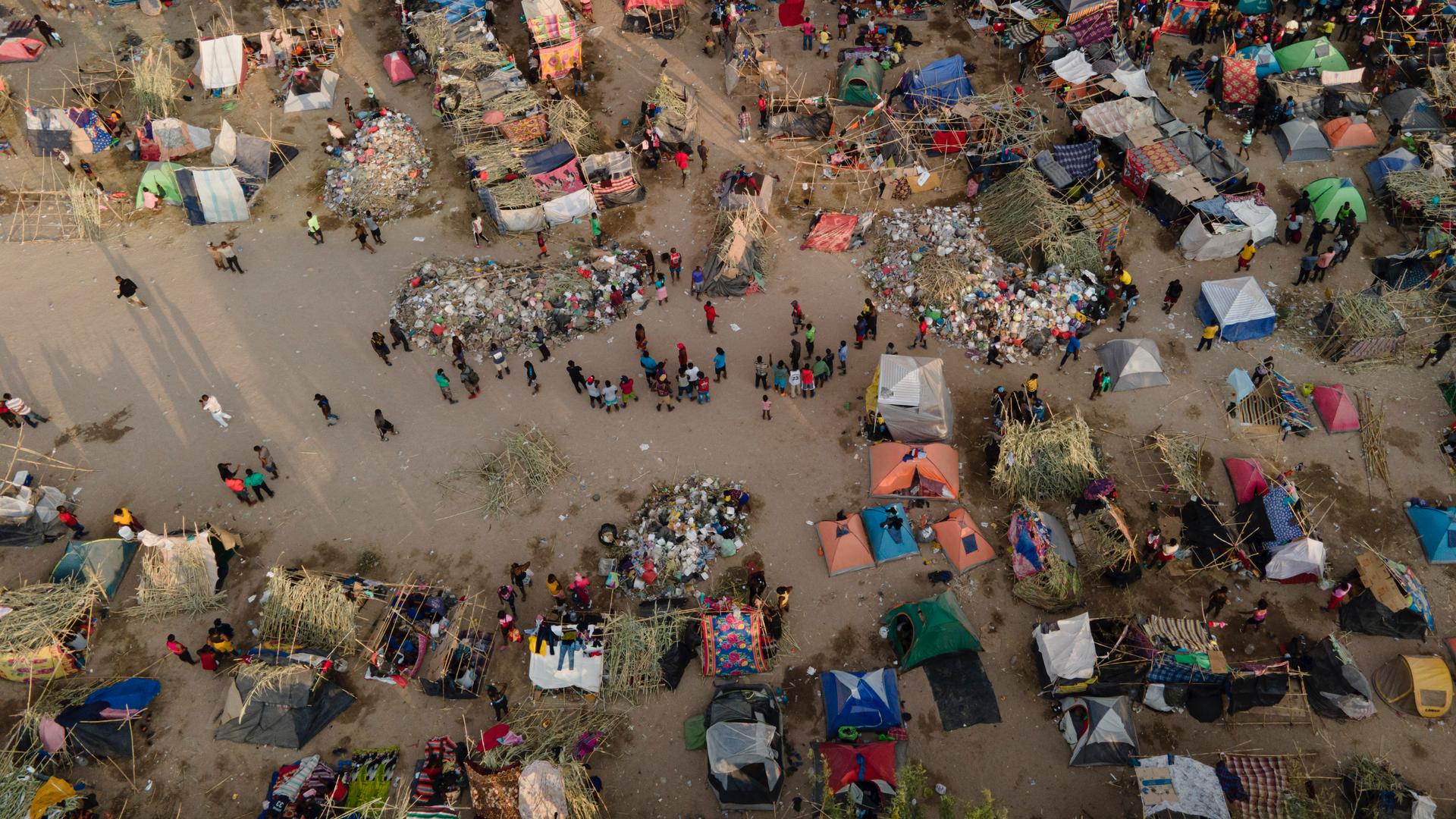The images in the media were startling. Thousands of migrants under the Del Rio International Bridge on the US southern border in Texas had set up makeshift tents.
It was summer and sweltering hot and crowded. Migrants, mostly from Haiti, were staying under the bridge until they were either allowed into the US — or sent back to Haiti.
Jacques, 25, remembers it well. He left Haiti in 2019 and made it to Brazil. He then tried reaching the US to seek asylum in September — that’s when he arrived at the bridge.
“When I was under the bridge, it was a very difficult thing to see how people were living,” said Jacques, whose full name isn’t being used because he fears for his safety.
US Customs and Border Protection agents barely gave people food, water or medical treatment, he said.
Related: Undocumented people bring grassroots organizing skills to the labor movement
Now, Jacques and 10 other Haitian migrants are suing the US government. Some — like Jacques — have been deported to Haiti; others are in Mexico. They argue that immigration officials violated their rights to seek a safer life in the US. They want the government to let them return and request asylum. They also want someone to take responsibility for how they were treated.
Jacques left Haiti because he refused to join a gang. So, gang members threatened to kill him.
Jacques said he was processed after about eight days under the bridge and held at two different immigration detention centers. Then, he was deported to Haiti.
“We asked an officer where we were going, and he said we wouldn’t be deported. And once on the airplane, the agents never told us where we were going.”
“We asked an officer where we were going, and he said we wouldn’t be deported. And once on the airplane, the agents never told us where we were going,” he said.
Around the time that Jacques was deported, Border Protection agents also faced another problem.
On TV, US officials on horseback were seen pushing back Haitian migrants. Border Protection union leaders said that agents were doing their jobs, and following a policy invoked by the Trump administration at the start of the pandemic. The policy, known as Title 42, lets US immigration officials automatically turn away asylum-seekers at the border.
Related: A federal jury ruled that a Washington state detention center owes detainees minimum wage
President Joe Biden reacted to criticism over how Haitians were being treated after photos of Border Protection agents trying to control migrants went viral.
“Of course, I take responsibility. I’m president, but it was horrible. As you saw, to see people treated like they did, horses were running over people being strapped. It’s outrageous. I promise you those people will pay,” Biden said during a Sept. 24 press conference.
The Department of Homeland Security has said it is still investigating what happened. The agency, which oversees Border Protection, didn’t respond to The World’s request for comment.
Immigration lawyer Karen Tumlin, founder and director of Justice Action Center in Los Angeles, said the administration clearly violated peoples’ rights. She’s part of the team representing Jacques and the other migrants.
“Presently, even though seeking asylum is legal and is a human right, there is no legal path for Jacques or anyone who is fleeing persecution and even death to properly seek and assert those legal rights that they have in the United States.”
“Presently, even though seeking asylum is legal and is a human right, there is no legal path for Jacques or anyone who is fleeing persecution and even death to properly seek and assert those legal rights that they have in the United States,” she said.
Guerline Jozef is the co-founder and executive director of Haitian Bridge Alliance, a nonprofit helping Haitians at the border. She’s criticized the US government for a history of disproportionally sending back Haitian migrants while allowing in people from other countries.
“And so, we clearly want to make sure that we cannot separate the fact that racism is a part and at the root of the way that they acted and reacted to the Haitian migrants,” she said.
Jozef said the lawsuit could take months — maybe a year to go through the courts.
In the meantime, Jacques said that he’s in hiding. He can’t return to his hometown because he’s still facing death threats from the gangs that wanted to recruit him.
He said that asylum in the US is his only chance at a safer life — if the lawsuit he’s a part of now goes in his favor, he may have a chance at seeking that.
